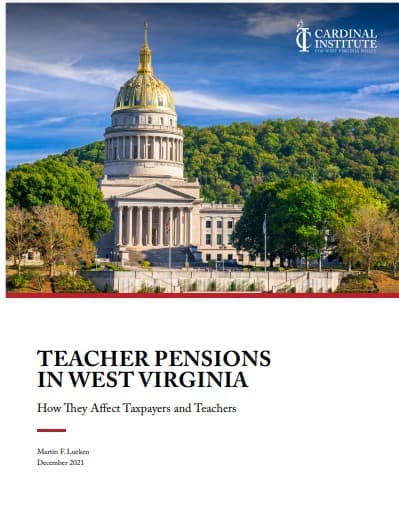TEACHER PENSIONS IN WEST VIRGINIA
HOW THEY AFFECT TEACHERS & TAXPAYERS
INTRODUCTION
The Coronavirus pandemic has tested and stressed public school systems everywhere and compelled parents, education leaders, and lawmakers to reexamine the resiliency of these institutions. In response to this crisis, West Virginia passed the Hope Scholarship Program and leads a stream of states this year that enacted new educational choice programs or expanded currently existing programs. Although expanding educational opportunities for families is a necessary condition for improving how the state provides K-12 education, an important question relates to another area of the education system and directly to teachers, who remain very important to educating students enrolled in schools: do these systems work for all teachers? The answer depends where you look, but one important yet often overlooked area is retirement benefits.
There are two key issues that face teachers and the retirement systems they enroll in: how states fund retirement plans and how benefits are distributed among different groups of teachers. The state took efforts over the last couple decades to improve the plan’s financial footing by making up payments to pay down unfunded liabilities. While steps taken were difficult and commendable, they likely won’t be enough. They also come at a cost to teachers and students who entered the picture long after funding was a problem and highlight equity concerns that often afflict defined benefit plans.
How these plans distribute benefits across different teachers deserves more attention. Given that incentives underlying these plans affect retirement behavior, it deserves a closer look. This paper analyzes West Virginia’s pension plan for teachers from a labor market perspective, how pension benefits accrue for West Virginia teachers, and how their underlying incentives are structured to influence arbitrary points of separation.
This paper is organized as follows: the next section discusses how defined benefit plans work, costs associated with the teachers’ pension plan, and the distribution of the plan’s costs. Then the paper shows how pension benefits accrue under the current plan for a representative teacher. It finishes with a discussion about policy options and offers concluding remarks.


